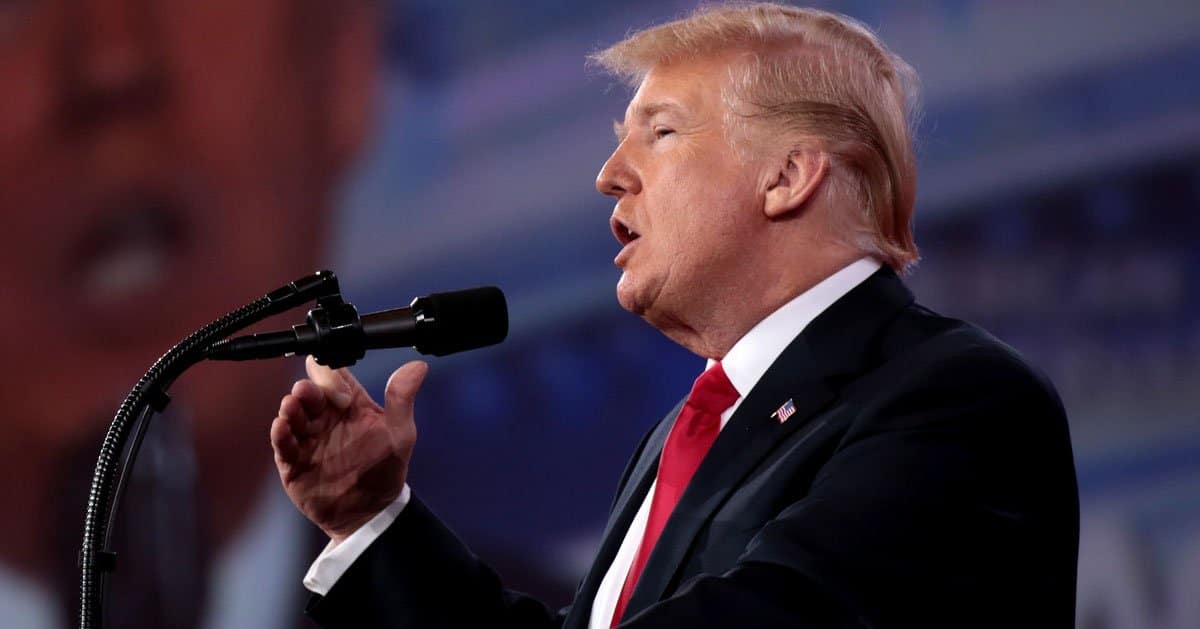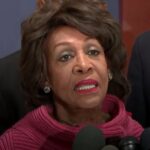






Is the political left playing a dangerous game with words and gestures that could incite unrest? Texas Democratic House candidate Rep. Jolanda Jones recently made headlines with a throat-slashing gesture on CNN’s "Outfront," signaling a rejection of civility in political discourse that’s become all too familiar.
This story reveals a longstanding trend of hostile language and imagery from Democratic politicians, liberal media figures, and celebrities aimed at Republican opponents.
Fox News reported that way back in 2013, MSNBC anchor Martin Bashir unleashed a vile suggestion of violence against former Alaskan Gov. Sarah Palin, calling her derogatory names and invoking a cruel historical punishment.
The backlash was swift, and Bashir stepped down weeks later, but the incident set a tone of acceptable hostility for some on the left. It’s hard to see this as anything but a cheap shot at a political foe.
In 2017, the rhetoric escalated with comedian Kathy Griffin posting a shocking image of herself holding a lifelike replica of then-President Donald Trump’s severed head, drenched in fake blood. The Secret Service investigated, yet Griffin defended the stunt as her First Amendment right. One wonders if free speech should cover such graphic provocations.
That same year, singer and actress Madonna mused publicly during the Women’s March about “blowing up the White House,” later claiming her words were misunderstood and meant to inspire change through love.
Actor Johnny Depp also chimed in at a music festival, joking about an actor assassinating a president and hinting, “Maybe it’s time,” before issuing an apology. These celebrity outbursts, while often walked back, plant seeds of hostility in the public mind.
Still in 2017, MSNBC host Nicolle Wallace pondered aloud, “How do you resist the temptation to run up and wring her neck?” while discussing then-press secretary Sarah Huckabee Sanders. Such casual talk of violence from a major media figure isn’t just reckless—it normalizes a dangerous edge in political critique.
Moving to 2018, California Rep. Maxine Waters urged supporters at a rally to confront Trump administration members in public spaces, saying, “If you see anybody from that Cabinet in a restaurant, in a department store, at a gasoline station, you get out and you create a crowd and you push back on them.”
This call to “push back” and make officials feel unwelcome anywhere crosses a line from dissent into intimidation. It’s less about policy disagreement and more about personal harassment.
By 2020, New York Sen. Chuck Schumer aimed at Supreme Court Justices Neil Gorsuch and Brett Kavanaugh, warning they’d “pay the price” for hearing an abortion-related case. Such language from a senior lawmaker directed at the judiciary feels like a thinly veiled threat. It’s the kind of rhetoric that erodes trust in institutions.
In 2023, New York Rep. Dan Goldman declared that Donald Trump was a danger to democracy and needed to be “eliminated,” though he later apologized for his wording. Even with the retraction, the initial statement carries a chilling undertone. Words matter, especially from elected officials.
Fast forward to 2024, when former President Joe Biden told donors on a call that it was time to put Trump “in the bulls-eye,” after repeatedly labeling him a threat to democracy.
Framing a political opponent as a literal target is a risky move, no matter the context. It’s the kind of language that can be misinterpreted by those eager for conflict.
Most recently, Texas Rep. Jolanda Jones made her throat-slashing gesture on CNN, rejecting Michelle Obama’s call for taking the high road with, “If you hit me in my face, I'm not going to punch you back in your face. I'm going to go across your neck.” Her campaign clarified to Fox News Digital that she wasn’t speaking literally, but the visual and verbal imagery still stokes a combative vibe.
Jones doubled down with, “We can go back-and-forth, fighting each other's faces. You've got to hit hard enough where they won't come back.” Even if metaphorical, such talk from a candidate fuels a culture of aggression over dialogue.
Other Democrats, like Maine Senate candidate Graham Platner and Virginia attorney general candidate Jay Jones, have also penned violent messages in the past, including calls for harm against Republican figures. This isn’t a one-off; it’s a thread running through political discourse on the left. When winning becomes a blood sport, everyone loses.
Looking at over a decade of these incidents, from media personalities to elected officials and celebrities, there’s a clear pattern of using violent rhetoric or imagery against political opponents. While passion in politics is inevitable, crossing into language or gestures that suggest harm undermines the very democracy these figures claim to protect. It’s time for cooler heads to prevail.

